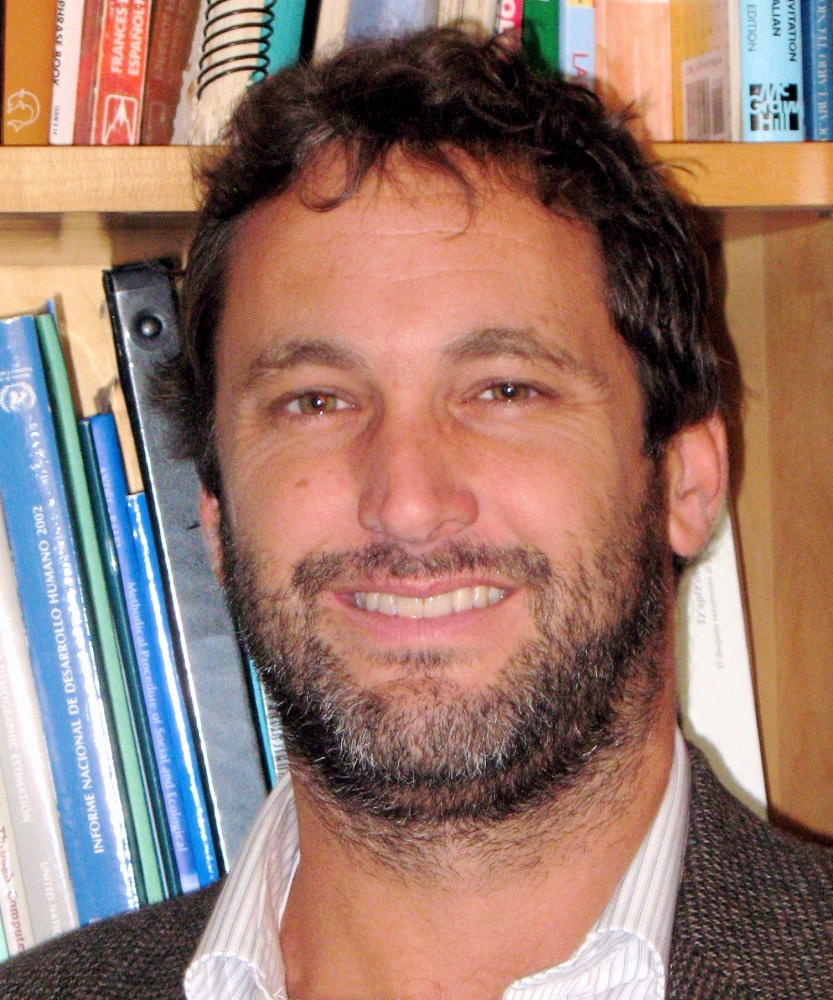Geography Professor David López-Carr joins the ranks of UCSB faculty members honored for their contributions to the advancement of science. The following article on the subject was written by Julie Cohen for The UCSB Current, dated November 24, 2014 and with the title above:
UC Santa Barbara’s David López-Carr has been named a fellow of the American Association for the Advancement of Science (AAAS). One of 20 elected for distinguished contributions to the field of geology and geography, he was recognized specifically for advancing the scientific understanding of the coupled process of human population dynamics and environmental change.
Election as a fellow is an honor bestowed upon scientifically or socially distinguished AAAS members by their peers for efforts on behalf of the advancement of science or its applications. López-Carr, who is the sole AAAS fellow from UCSB this year, joins more than 70 faculty members who have been so recognized since 1960. “I’m honored to receive this award from my peers,” said López-Carr, a professor in UCSB’s Department of Geography and director of the campus’s Human-Environment Dynamics Lab. “I consider it a reflection on the quality of UCSB and our geography department.”
López-Carr also is currently the systemwide chair for the Committee on Affirmative Action and Diversity for the UC Faculty Senate and is an associate director of the UC Global Health Center of Expertise on Migration and Health. He holds affiliate positions in three UCSB interdisciplinary programs: Latin American and Iberian Studies, Global and International Studies, and Marine Studies.
“I am delighted that David López-Carr has been recognized as a fellow of the AAAS, the largest scientific society in the world,” said Pierre Wiltzius, the Susan and Bruce Worster Dean of Science. “Being a faculty member in the Department of Geography as well as contributing his expertise to multiple centers on campus makes David an excellent representative of the quintessential interdisciplinary, collaborative scientists at UCSB.”
In 2012, López-Carr, also director of UCSB’s program in Latin American and Iberian Studies, was one of three UCSB faculty members to share in a grant from the Andrew W. Mellon Foundation to support a Sawyer Seminar on the Comparative Study of Cultures titled “Sea Change: Integrating the Historical Study of Human Cultures and Marine Environments in Three Pacific Regions.” He was also a lead author of the United Nations Environment Programme’s Fifth Global Environmental Outlook (GEO-5). GEO-5 represented the United Nations position statement on global environmental change and suggested policy directions for the 2012 Rio+20 Conference on Sustainable Development, a world summit held in Rio de Janeiro.
López-Carr’s work focuses on population dynamics, particularly links between migration and fertility and terrestrial and marine resource use in Latin America and between population and health vulnerabilities to climate change in Africa. His research integrates diverse data sources from United Nations and World Bank socioeconomic and demographic data to remotely sensed imagery with field-based surveys.
López-Carr received a bachelor’s degree in Spanish literature (with a minor in geology) from Bates College and a Ph.D. in geography from the University of North Carolina, where he also held a National Institutes of Health postdoctoral fellowship in biostatistics in the School of Public Health and the Carolina Population Center. In addition to Spanish, he speaks Portuguese, Italian, French, and rudimentary Q’eqchí Maya.
López-Carr has received various academic honors, including the 2002 Nystrom Award for outstanding paper based on a dissertation in the field of geography. In 2013, he was one of a select handful of geographers and social scientists chosen as Kavli Frontiers of Science fellows.
This year, 401 members were named AAAS fellows. Each new fellow will be presented with an official certificate and a gold and blue (representing science and engineering, respectively) rosette pin at the 2015 AAAS annual meeting in San Jose, California, in February.
The tradition of AAAS fellows dates back to 1874. The nonprofit organization includes 254 affiliated societies and academies of science, serving 10 million individuals. Its journal Science has the largest paid circulation of any peer-reviewed general science publication in the world, with an estimated total readership of 1 million. AAAS is open to everyone and fulfills its mission to “advance science and serve society” through initiatives in science policy, international programs and science education, among others.
Editor’s note: Many thanks to Research Staff member Pete Peterson for bringing this material to our attention, and congratulations and kudos to David!



